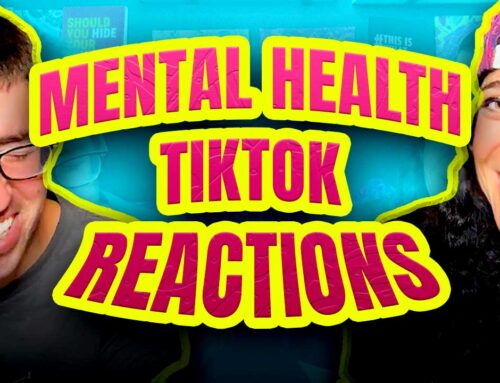Lifestyle Changes That Can Help Deal With Mental Illnesses
Mental illness is a broad term covering many health conditions that impact thoughts, emotions, and behavior. A person may have a mental health concern for a short period, but when it affects their daily function, they may be dealing with a mental illness.
Mental illness affects all groups of people and can cause a lot of misery for them and their loved ones. Mental health issues still come with stigma in many places, so many people shy away from talking about their problems. Significant strides have been made in developing medical and psychotherapeutic treatments for major mental ailments. Lifestyle changes can also yield tremendous results in treating mental illnesses.
Lifestyle Changes for Common Mental Illnesses
Clinical Depression
Clinical depression is a severe mental ailment marked by feelings of sadness, loss, or anger that disrupt one’s daily life. The symptoms of clinical depression vary in severity and include sadness, crying for no reason, loss of interest, appetite or weight changes, and suicidal thoughts. Treatment involves antidepressant drugs and psychotherapy.
With stress and alcohol being the most common triggers for clinical depression (Source: StuffThatWorks), some simple lifestyle changes can produce significant positive outcomes, including:
Exercise
Exercise stimulates the body to produce endorphins that produce a feeling of elation and wellbeing. Engaging in physical activities for at least 30 minutes every day can help quell symptoms. Meditative exercises like yoga can also provide symptom relief.
Cutting Down Alcohol
Alcohol has depressant effects, and depressed individuals may want to self-medicate with alcoholic drinks. Cutting down alcohol can help depression symptoms.
Schizophrenia
Schizophrenia is a chronic mental health illness that leaves patients unable to differentiate between reality and their imaginations. It is a severe illness that can affect every aspect of life. People with the condition seem to lose touch with reality, often leading to strange behavior. The severity and frequency of episodes vary among individuals. Some people may have a psychotic episode once, while others have it throughout their lifetime but live normal lives in between.
Symptoms of schizophrenia include isolation, sleep troubles, hallucinations, delusions, loss of focus, agitation, irritability, excitement, loss of interest, etc. Schizophrenia treatment comprises antipsychotic drugs, psychosocial therapy, and vocational rehabilitation.
Lifestyle changes that can help schizophrenia patients include:
Alcohol and Drug Cessation
Up to 50% of people with schizophrenia have a problem with alcohol or substance abuse, while 70% are nicotine-dependent. These substances worsen symptoms, so patients must be intentional about quitting.
Maintaining a Healthy Weight
Some antipsychotic medications slow metabolism and cause weight gain. Regular exercises and healthy dieting can help schizophrenia patients maintain weight and avoid obesity-related complications.
Staying Connected
Isolation and relapse are common in schizophrenia, so patients must work with their healthcare providers and loved ones to stay on track and catch the warning signs on time.
Anxiety Disorder
Anxiety disorder describes a group of disorders marked by excessive fear, worry, and nervousness. While anxiety is a normal reaction in potentially hazardous situations, it becomes a disorder when the duration and severity of the anxiety are disproportionate to the stressor. In some cases, there may be no trigger for the feelings of anxiety.
Anxiety disorder symptoms include uncontrollable feelings of worry, restlessness, difficulty concentrating, insomnia, sweating, rapid breathing, fear, tingling, and numbness.
Treatment of anxiety disorder involves using anti anxiety medications and psychotherapy or counseling.
Lifestyle modifications that could help with anxiety include:
Relaxation Techniques
Incorporating relaxation techniques and exercises can help reduce anxiety symptoms. Yoga, meditation, mindfulness, and similar practices can help patients gain a foothold of their emotions and alleviate their symptoms.
Stress Management
Managing stress for anxiety can involve identifying and limiting the effects of stressors and triggers. Arranging one’s work schedule, making plans to unwind with friends and family can help manage stress.
Seeking Support
Dealing with anxiety alone can be challenging. Joining a support group in a physical place or online allows and interacting with people experiencing the same thing can help manage symptoms.
Bipolar Disorder
Bipolar disorder is a mental disorder that comes with drastic mood changes. A bipolar patient alternates between intense periods of mania and depression. These mood shifts happen in quick succession for some patients while others experience them simultaneously.
The symptoms of bipolar disorder depend on whether the patient is in a manic or depressed state. General manic symptoms include impaired judgment, euphoria, increased libido, feeling able to do anything, distraction, boredom. Depressed symptoms include extreme sadness, insomnia, guilt, hopelessness, weight changes, fatigue, loss of pleasure, and suicidal thoughts.
Treating bipolar disorder involves medications like mood stabilizers, antipsychotics, antidepressants, anxiolytics, and psychotherapy.
Lifestyle changes to combat bipolar disorder include:
Have a Routine
Setting and sticking to a work, academic, or leisure routine helps many people with bipolar disorder manage their mood shifts.
Eating a Healthy and Balanced Diet
Eating healthy, balanced meals can help patients feel better and prevent symptoms. Bipolar patients should also limit the use of alcohol and caffeine.
Stress Avoidance
Stressful situations tend to worsen mood symptoms in people with bipolar disorder. Meditative practices to relieve stress like yoga and mindfulness can provide symptom relief.
Post-traumatic Stress Disorder
Post-traumatic Stress Disorder (PTSD) is a mental illness that develops after being exposed to a traumatic situation that leaves them shocked, helpless, and frightened. The event could be a war, crime, accident, natural disaster, or death of a loved one.
The symptoms of PTSD usually begin may be emotional or physical and begin about three months after the event. Emotional symptoms include nightmares, flashbacks of the event, fearful thoughts, difficulty sleeping, and avoiding reminders of the event. Physical symptoms of the event include fatigue, headaches, dizziness, chest pains, stomach problems, and diminished immunity leading to frequent infections.
PTSD treatment comprises anxiolytic and antidepressant drugs, psychotherapy, and counseling.
Lifestyle alterations for PTSD symptom relief include:
Regular Exercises
Exercise relieves stress and releases endorphins which elevate mood. Regular workouts can reduce stress in PTSD patients and help them become more aware of their physical and emotional state.
Joining a Support Group
People with PTSD can feel isolated and disconnected from others. A support group offers a safe space to discuss and share your feelings with people who understand you.
Meditative Practices
Regular meditation can help quell PTSD-related anxiety and provide patients with a feeling of calm and well-being.
Conclusion
A mental illness does not have to disrupt a person’s life. The right combination of drugs, therapy, and lifestyle changes can help people with mental illnesses lead normal, productive lives.





